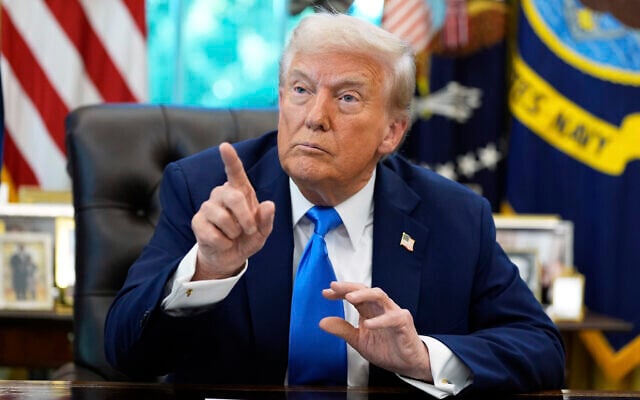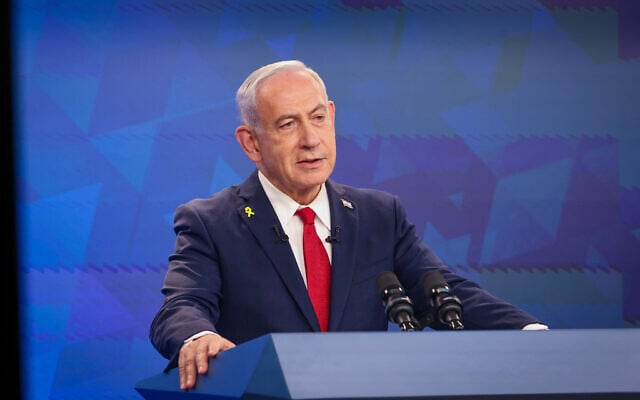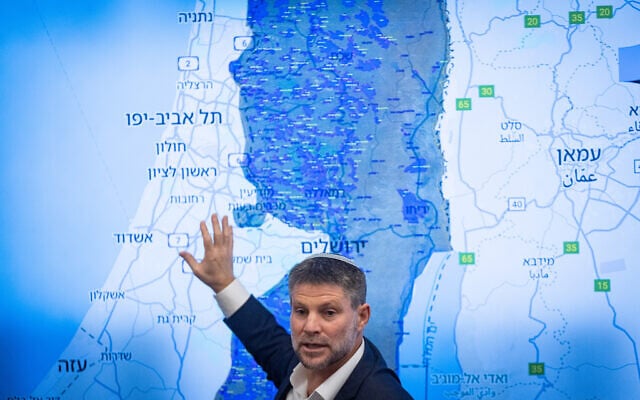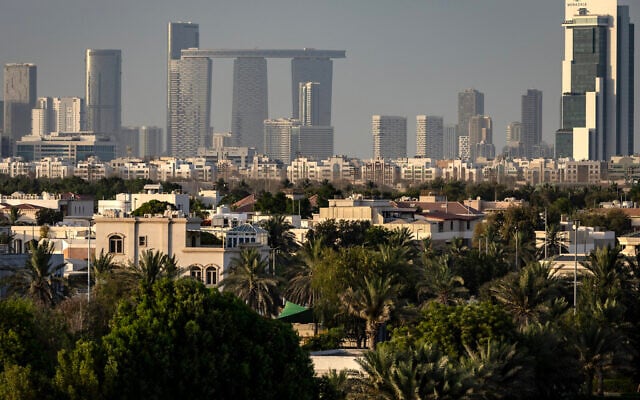

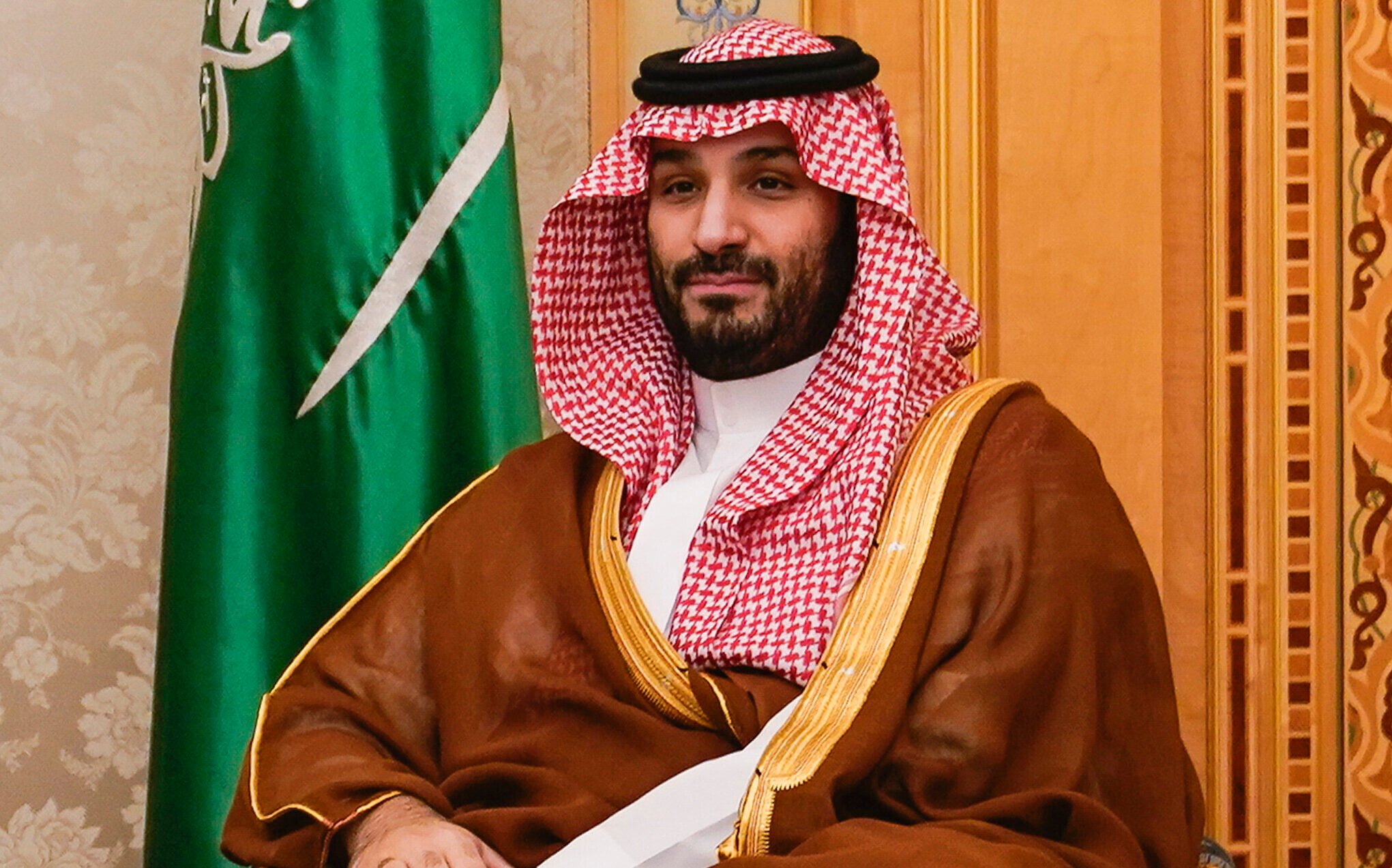
Saudi Arabia has conveyed a message to Israel that there will be “major implications in all fields” if it annexes any part of the West Bank, according to a Sunday report.
Channel 12 said Riyadh did not delineate what steps it might take, but it could declare the prospect of Saudi-Israeli normalization dead, or once again close its airspace to Israeli flights after opening it in 2022.
Annexation could also harm the under-the-radar security and trade relations between the two countries. The report also said annexation risks endangering the Abraham Accords.
The United Arab Emirates has previously warned that Israeli annexation would be a “red line,” jeopardize the Abraham Accords, and end the pursuit of regional integration.
Prime Minister Benjamin Netanyahu’s far-right allies have pushed him to annex the West Bank or parts of it in response to the moves by multiple Western nations to recognize Palestinian statehood this week, due to their anger over Israel’s handling of the two-year-old war in Gaza.
People around US President Donald Trump have indicated that they do not wish to see annexation, the TV report added. “It’s the last thing they need,” according to reporter Dana Weiss, especially after Israel’s September 9 strike on Hamas leaders in US ally Qatar.
Channel 12 said Saudi officials will discuss how the war in Gaza can be brought to an end and scenarios for the “day after” with Trump on the sidelines of the United Nations General Assembly this week, along with leaders from the UAE, Qatar, Jordan, Egypt, and Turkey.
Trump will also hold a separate session with Gulf leaders — from Saudi Arabia, UAE, Qatar, Oman, Bahrain and Kuwait — who want to hear his stance on the Qatar strike.
Netanyahu held a meeting Sunday to discuss possible responses to Western countries recognizing a Palestinian state. Potential responses include changing the classification of parts of the West Bank’s Area A to Area B — revoking Palestinian security control over those areas, leaving only Palestinian civil control; and changing parts of Area B to become Area C — meaning revoking Palestinian civil control and changing to full Israeli control.
Other responses could include closing the consulates of some countries that recognize an independent state of Palestine, particularly that of France.
Far-right ministers Bezalel Smotrich and Itamar Ben Gvir were reportedly not invited to the meeting.
At the meeting, Netanyahu and Strategic Affairs Minister Ron Dermer stressed that no matter what, full coordination with the US must be maintained.
As such, no decision will be made until Netanyahu returns from his meeting with Trump next week, the prime minister said.
The Channel 12 report said Netanyahu told visiting US Secretary of State Mario Rubio last week that he is under coalition pressure to annex Area C, which constitutes 60 percent of the West Bank.
Rubio reportedly responded that the focus right now needs to be on ending the war in Gaza and getting back the hostages, and nothing else.
For Netanyahu, whose coalition relies on right-wing nationalist parties, annexation could be seen as a valuable vote-winner before an election expected next year.
Senior European officials have indicated to Israel that further states are gearing up to recognize Palestine, and have warned that Israeli annexation would be considered “collective punishment” of the Palestinians, and would endanger the Abraham Accords, the TV channel said.
“Israel will be making a mistake if it responds to our recognition [of a Palestinian state] with harsh diplomatic steps,” it quoted European officials as telling Israel. “It would be unfortunate if we were dragged into a further response. We will not take annexation lying down.”
“If Netanyahu and his government are interested in destroying the stable thing we have built in the Middle East, they will bear the consequences.”
Last week, Reuters reported that while the UAE may downgrade its diplomatic ties with Israel if Netanyahu’s government annexes part or all of the West Bank, it was not weighing the option of severing the relationship completely, three sources briefed on the Gulf Arab state’s deliberations told Reuters Thursday.
But the Ynet news outlet later cited unnamed Gulf officials who pushed back on the report. “If Israel carries out annexation, any annexation, all options are on the table…including the most severe ones,” the sources were quoted as saying, referring to the possibility of severing ties with Israel.
The sources stressed that any form of annexation would be a red line as far as Abu Dhabi was concerned, and would pose an “immediate” danger to the future of Israel-UAE relations.
The UAE is one of just a few Arab states with diplomatic relations with Israel and downgrading ties would be a major setback for the Abraham Accords — a signature foreign policy achievement of Trump and Netanyahu.
In a sign of growing tension with Israel, the Gulf state last week decided to bar Israeli defense companies from exhibiting at the Dubai Airshow in November, three of the sources said. Two other sources, an Israeli official and an Israeli defense industry executive, confirmed the decision.
Finance Minister Smotrich this month said that maps were being drawn up to annex most of the West Bank, urging Netanyahu to accept the plan. Itamar Ben-Gvir, the national security minister, also backs annexing the territory.
After establishing ties, the UAE and Israel built a close relationship, focusing on economic, security, and intelligence cooperation. This followed years of discreet contacts.
But differences began emerging after Netanyahu returned to power in 2023 at the head of what has been described as the most right-wing government in Israel’s history. Abu Dhabi has condemned repeated efforts by Ben Gvir to alter the status quo of Jerusalem’s Temple Mount, also called the Al Aqsa compound, to allow Jews to be able to pray there. The site is sacred to Muslims and Jews, and at present, non-Muslims can visit but cannot pray.
The UAE has also criticized Israel’s policies in the West Bank and its military operation in Gaza, which began in October 2023 after the Hamas-led massacre of 1,200 people, mostly civilians, during the terror group’s invasion of southern Israel.
Abu Dhabi has said that an independent Palestinian state alongside Israel was necessary for regional stability. Netanyahu this month declared there will never be a Palestinian state.


